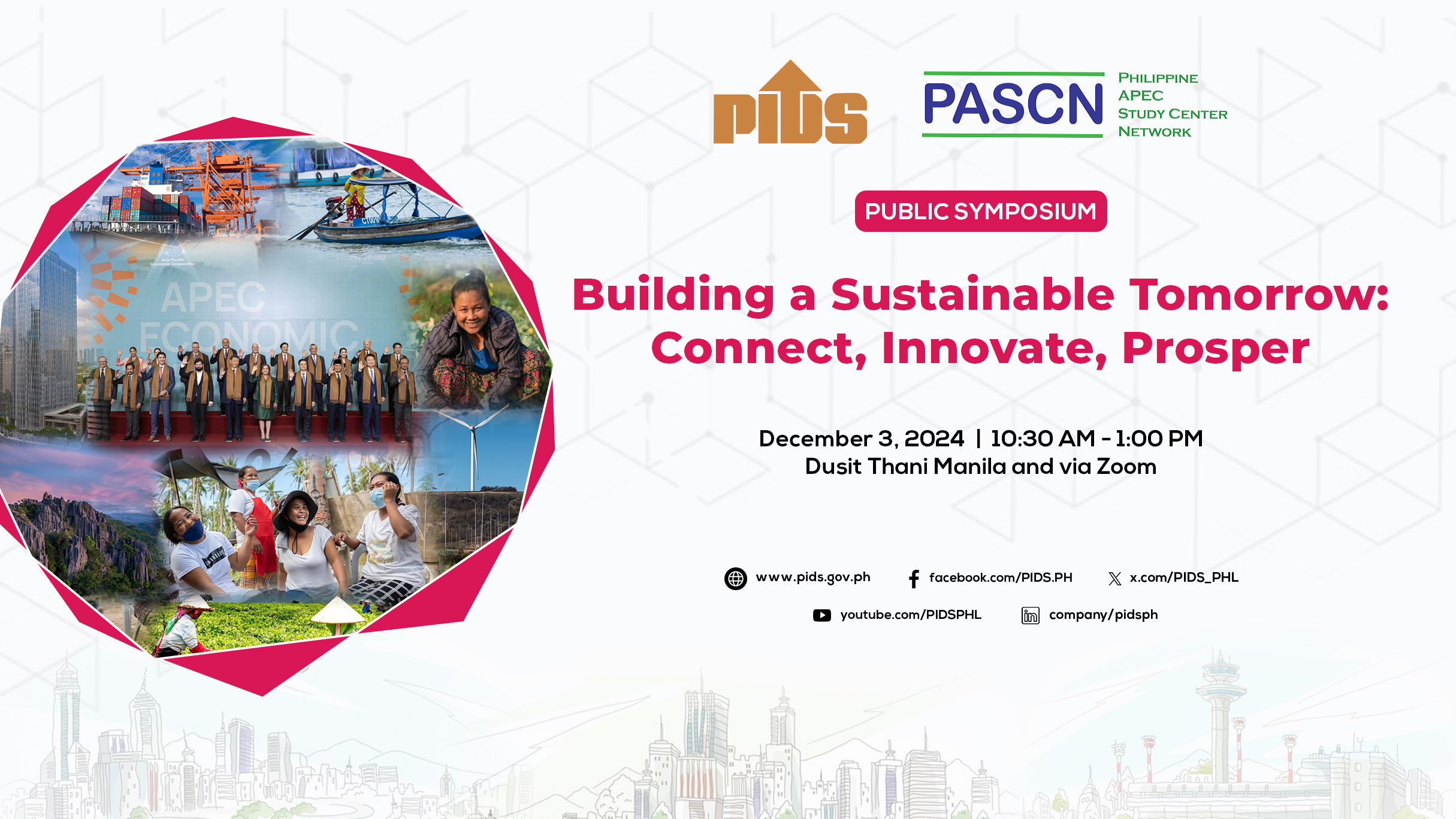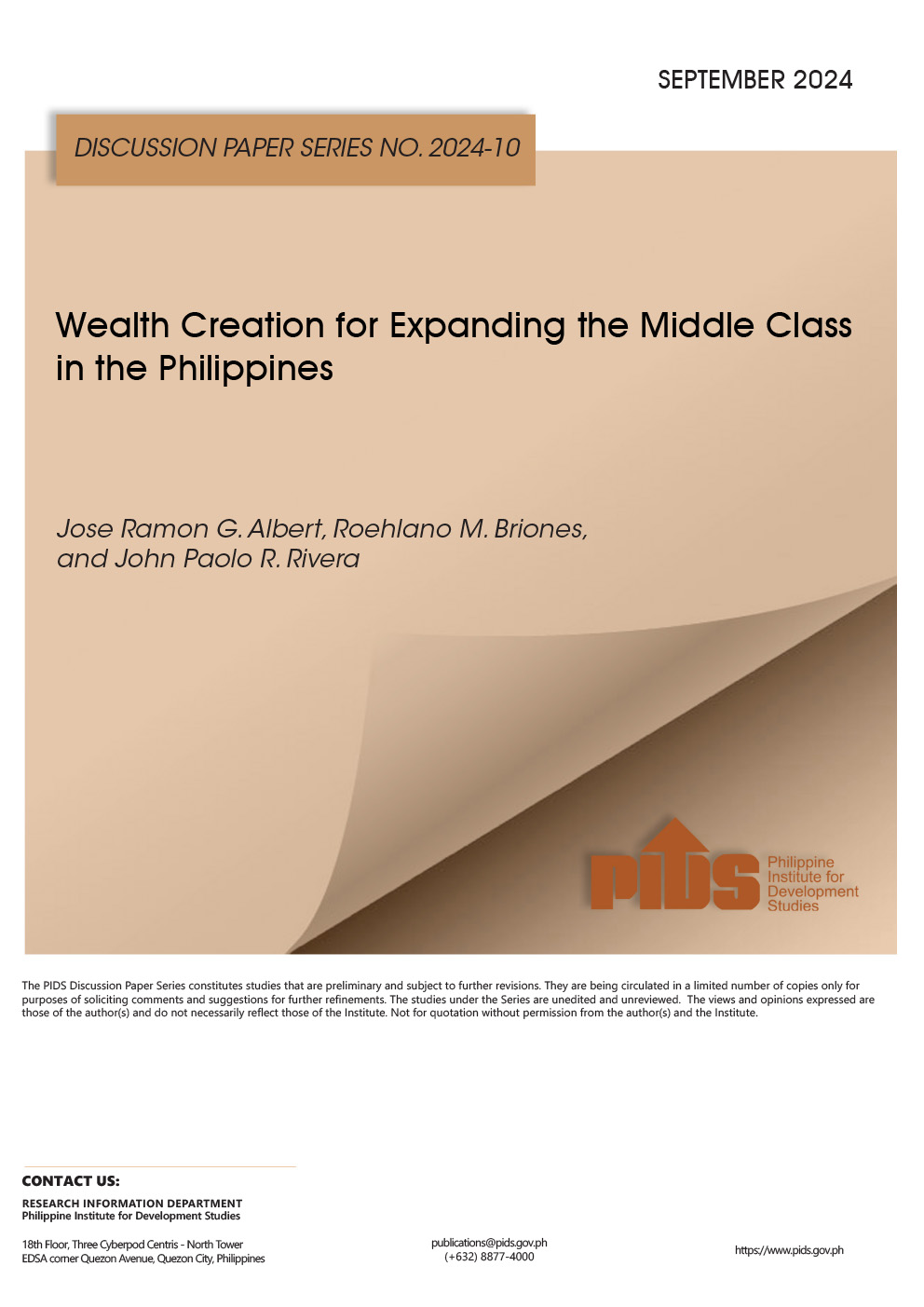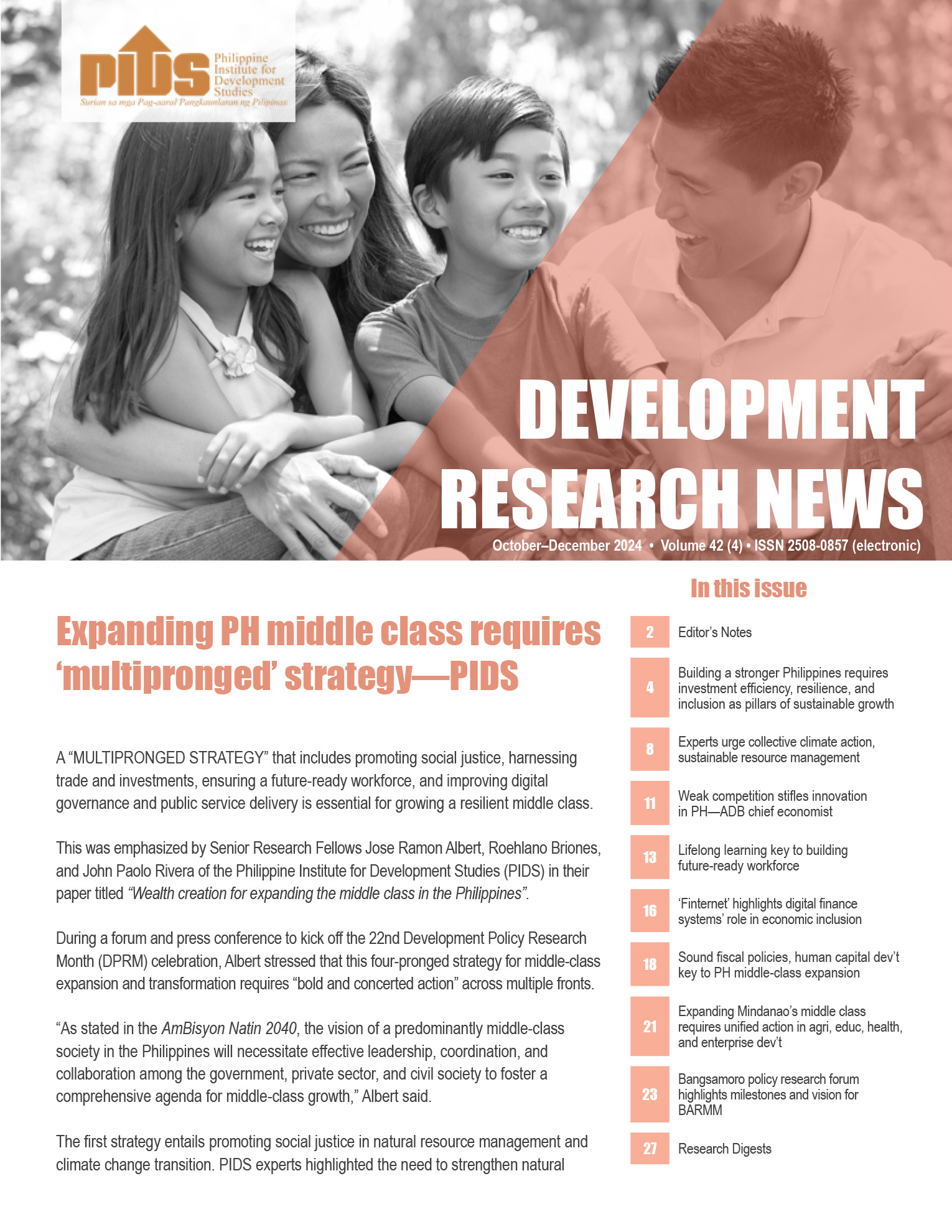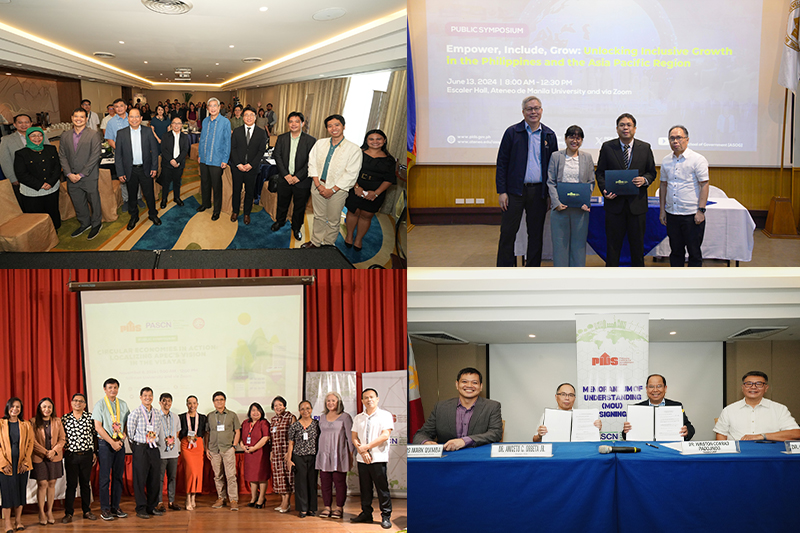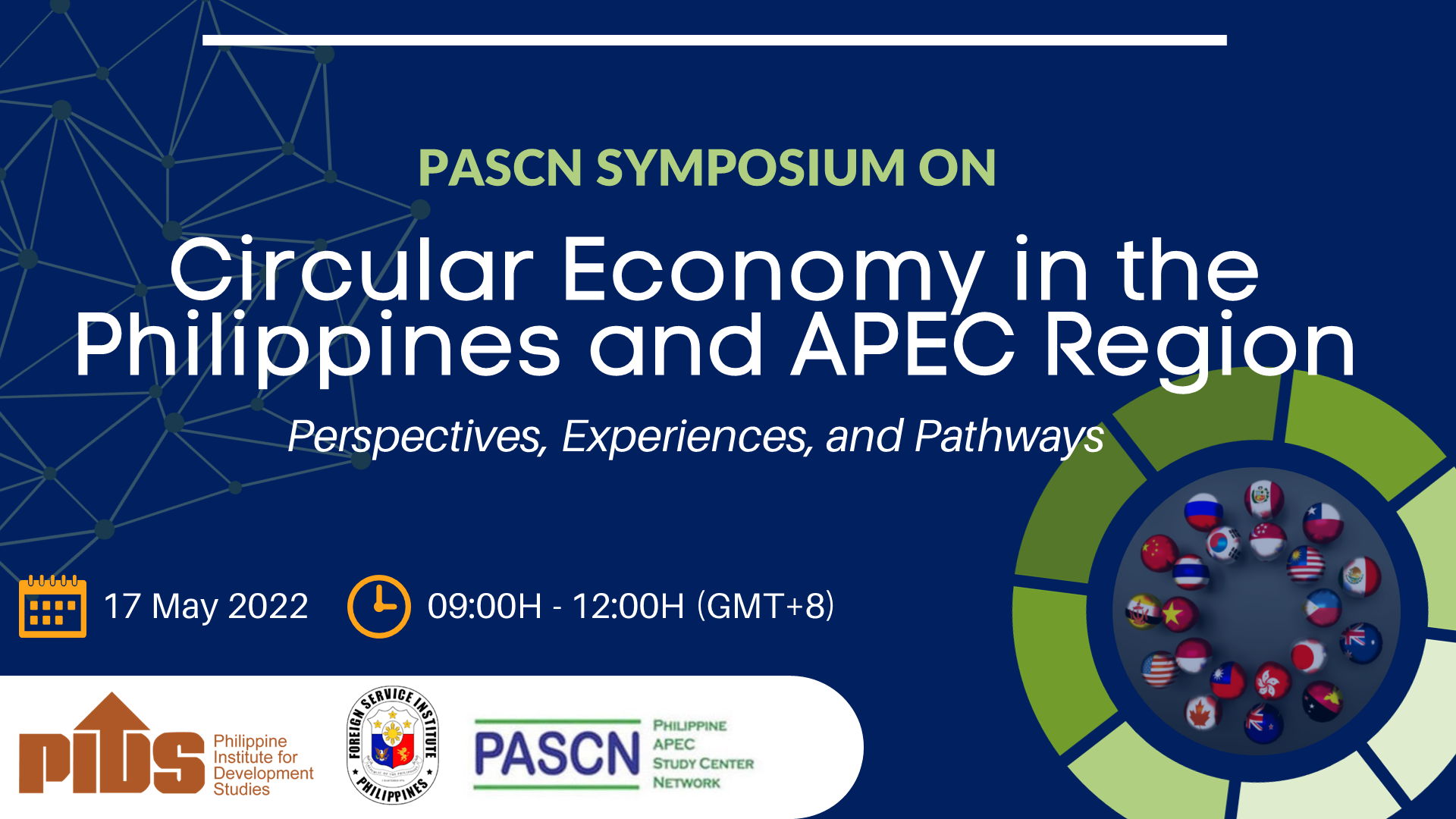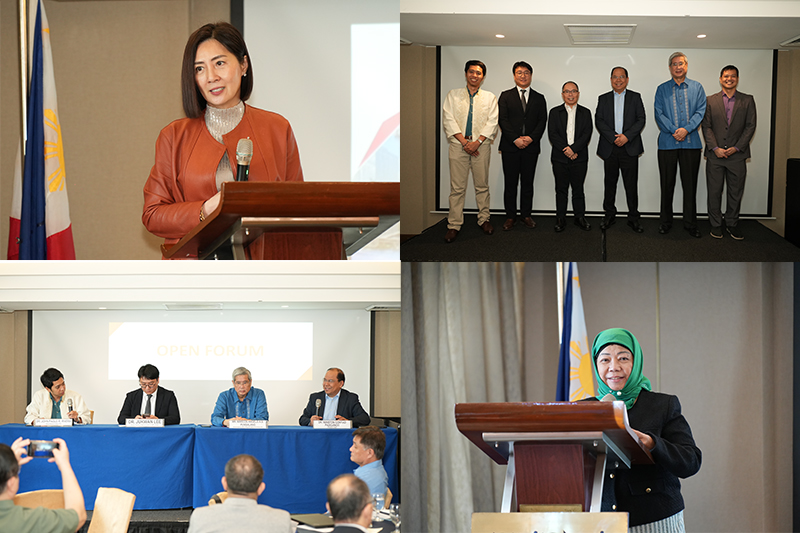
Collective action across the Asia-Pacific region is crucial for sustainability, inclusivity, and innovation amid climate change, economic inequality, and the rapid pace of technological transformation.
This was emphasized in the public symposium on “Building a Sustainable Tomorrow: Connect, Innovate, Prosper”, which was hosted by the Philippine APEC Study Center Network (PASCN) of the Philippine Institute for Development Studies (PIDS). The event brought together policymakers, educators, and regional experts from various sectors. It provided a platform for dialogue on overcoming regional challenges and building resilience through cross-sectoral collaboration.
Dr. Jikyeong Kang, President of the Asian Institute of Management, highlighted the economic importance and expanding global influence of the Asia-Pacific region. “Many of us think that [prosperity] would be a very ambitious goal, given that more than 13 percent of the 117 million [Filipinos still live] in poverty. However, there are opportunities for upward mobility,” she said.
Kang highlighted the role of digital technologies, like artificial intelligence and blockchain, in reshaping value chains and creating new economic prospects. However, she stressed that these advancements must prioritize equity and inclusion to ensure that the benefits of progress reach all sectors of society.
Building on this theme, Dr. Alma Berowa, Vice President for Academic Affairs at the Mindanao State University System, argued for a broader definition of prosperity.
“Prosperity must transcend traditional economic metrics to uphold human dignity and expand opportunities for all,” she stated.
Berowa pointed to Mindanao as a region rich in untapped potential, where localized strategies could lead to inclusive growth and opportunities for marginalized communities. She called for a more comprehensive approach to development that actively involves the most vulnerable populations.
Turning to actionable strategies, Dr. Jukwon Lee, Director of Korea’s National Center for Asia-Pacific Economic Cooperation (APEC) Studies, shared South Korea’s vision for its upcoming hosting of the 2025 APEC Summit.
“Connectivity, digital innovation, and inclusive growth will be at the forefront of Korea’s agenda,” Lee explained.
He called for urgent, collective action to address critical challenges such as climate change, supply chain disruptions, and demographic shifts. He emphasized that regional economies must collaborate to leverage technology and innovation for sustainable and shared prosperity.
From the Philippines’ perspective, Marcos Angelo Punsalang, Director General of the APEC Philippines National Secretariat, detailed the country’s strategic priorities. These include inclusive growth, digital transformation, and environmental sustainability—elements he described as deeply interconnected.
“This alignment ensures that the Philippines can effectively contribute to and benefit from the collective efforts of APEC member economies, driving forward a shared vision of prosperity and resilience in the region,” Punsalang noted.
Ambassador Laura del Rosario, President of Miriam College and former Undersecretary for International Economic Relations at the Department of Foreign Affairs, highlighted lessons from countries like Vietnam and China, which have successfully adapted to global shifts.
“[The Philippines] still has much to contribute and gain from discussions on the emerging forms of services and trade. As we look ahead, it becomes clear that the services sector presents a more viable opportunity for growth,” del Rosario stated.
She stressed the importance of structural reforms and international collaboration in positioning the region for long-term success.
Adding to the discussion, Dr. Winston Conrad Padojinog, President of the University of Asia and the Pacific, stressed that achieving sustainable economic progress requires addressing both mindsets and institutional reforms. He highlighted the critical role of education in shaping individuals who are collaborative, innovative, and equipped to lead inclusively.
“Institutions must not only be capable of driving change but also nurturing the values and principles that support a more equitable and sustainable future,” Padojinog remarked.
Watch the recording of the public symposium here: https://bit.ly/pidslive120324.

